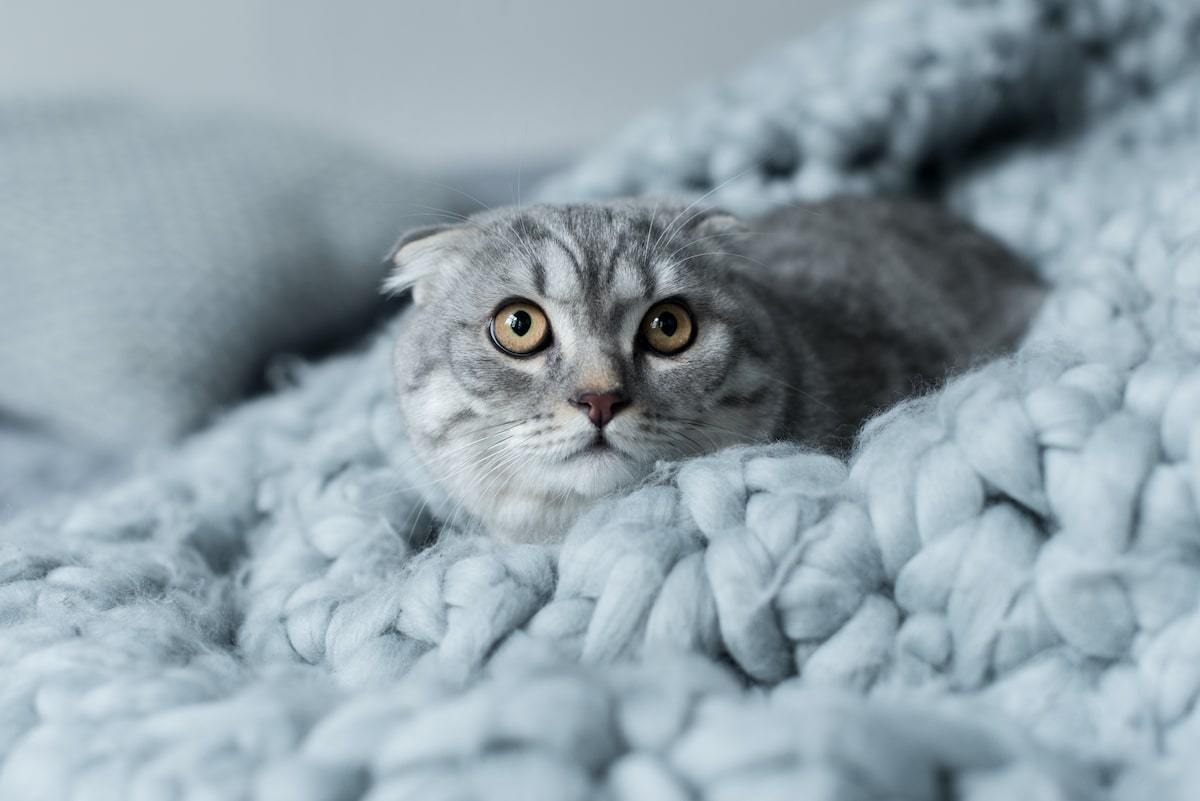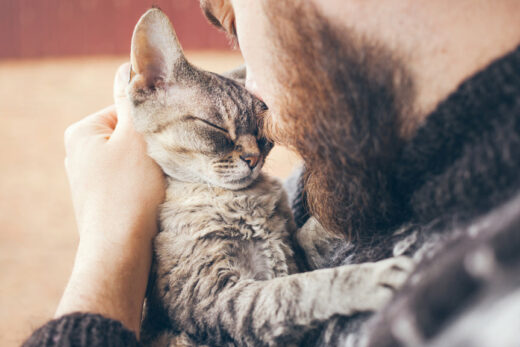
Have you seen those videos on TikTok or YouTube where pet owners place a cucumber or water bottle behind their cat without them knowing… only to see them turn around, jump into the air, and then scatter off as fast as they can?
While those videos are funny to some, inflicting that kind of fear is no laughing matter.
The truth is, anxiety in cats is a real issue. Scientists and veterinarians believe that it plays a huge role in some of the strange cat behavior problems pet owners see everyday.
So, what exactly is cat anxiety?
Similar to anxiety in humans, cat anxiety is a debilitating fearful or dreadful anticipation.
Cats by nature are usually on high alert. They’re either on the hunt for their own prey, or steering clear from being hunted themselves.
To your cat, a potential danger lurks around every corner. Maybe it’s the vacuum cleaner, the strange noises from the ice maker, or that automatic garbage can that has them on alert.
In other words, cat anxiety encourages that fight or flight response. They’re either gearing up to attack, or ready to run and take cover under your bed. And here’s the issue: cat anxiety not only increases their heartbeat, but it leaves them feeling restless and unusually tense.
But it doesn’t always have to be a strange object or a weird noise that raises your cat’s anxiety. A new home, a change in your cat’s routine, a new location of their litter box, a strange odor, or a new family member can also throw your cat into an anxious state.
And here’s where things get tricky: there are different types of anxiety in cats.
Types of anxiety in cats
Cat anxiety is usually categorized as situational or generalized.
Situational anxiety in cats usually includes traveling in a car, visiting a vet, being left home alone, meeting a dog for the first time, etc. These are all situational events.
Generalized anxiety in cats can happen at any time, any place, and for no apparent reason—at least to you.
But generalized cat anxiety can have many triggers. It can be lighting a candle, blending a smoothie, packing your gym bag, or rearranging your furniture. There may not be any specific reason why your cat feels anxious; they just exhibit anxious behaviors regardless of where they are, what they see, or who they’re with.
That said, there is one type of anxiety in cats that has become an epidemic…
Separation anxiety in cats
This is the most common type of cat anxiety.
In fact, scientists have known that separation anxiety is a huge issue in dogs. But it seems that our feline friends have been secretly suffering from this same condition for years.
And the worst part? Separation anxiety in cats is getting worse.
Since the COVID-19 pandemic, pet owners have seen a huge increase of separation anxiety in their beloved pets.
Why? After being told to stay home for months on end, the world has slowly returned to a semi-normal state. But meanwhile, our feline friends have gotten so used to having us around 24/7, that it’s become their new normal.

Now they’re learning to adjust again, and it’s not as easy for them as it is for you.
As we mentioned above, separation anxiety falls within the situational anxiety category. When you leave your fluffy feline at home, you may think they’re going to relax in their cat tree until you return. While that may be the case for some cats, others remain in fight or flight mode.
Their human is now gone, maybe forever in their mind. And now, they’re left in the house with potential dangers around every corner. They may be wondering: “What happened to my owner? Will they ever return?”
Of course, we don’t really know what’s going on in our cat’s head. But we do know that separation anxiety is the equivalent of a panic attack. Pretty scary, right?
But there are other types of anxiety in cats…





